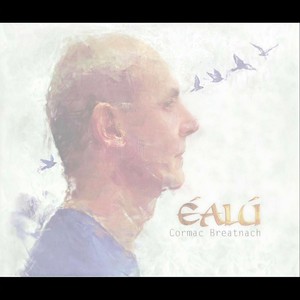
- 歌曲
- 时长
-
1Fiachra Trench / Roger Doyle / Martin Dunlea / Aoife Doyle / Gavin Ralston / Robbie Harris / Aongus Ralston / Eamon Murray / Seán Whelan / Paul Mcateer / Cormac Breatnach06:41
-
2Fiachra Trench / Aoife Doyle / Gavin Ralston / Robbie Harris / Aongus Ralston / Paul Mcateer / Uché Gabriel Akujobi / Niwell Tsumbu / Cormac Breatnach05:41
-
3Fiachra Trench / Roger Doyle / Aoife Doyle / Gavin Ralston / Robbie Harris / Aongus Ralston / Brian Dunning / KOKIA (吉田亚纪子) / Seán Whelan / Paul Mcateer / Cormac Breatnach09:30
-
5Fiachra Trench / Roger Doyle / Gavin Ralston / Robbie Harris / Aongus Ralston / Paul Mcateer / Jaime Muñoz / Cormac Breatnach07:26
-
6Fiachra Trench / Mike Considine / Aoife Doyle / Gavin Ralston / Carlos Beceiro / Robbie Harris / Jorge Arribas / Diego Galaz / Paul Mcateer / Jaime Muñoz / Cormac Breatnach06:54
简介
Within Eálú, Cormac Breatnach has spread his wings far and wide, featuring a range of individualist musicians, diverse traditions and musical genres that might be better understood as a programmatic endeavour with a narrative inviting imaginative correlations with the music. Featuring expert musicians including Fiachra Trench, Roger Doyle, Steve Cooney, Brian Dunning, and more popular voices such as Vanessa Williams among notable others; Éalú opens out like a large concept board, where the artist offers an intuitive response to the influences, experiences, and performers that have shaped his music over time. The album is effectively produced by Gavin Ralston, it is quick shifting and emotive, a musical response to an extra-musical narrative that documents Cormac’s life as much as his music. While clearly coming within the genres typically filed under Celtic/Irish/World, it is perhaps somewhat unjust to try to contextualise this collection within our expectations or familiarity with these genres. Éalú appears as an outward exposition of the artist’s interest in expanding his expression and ultimately his sound. Increasingly today, high performing musicians are exploring their own musicality within what might be loosely termed as traditional & improvised music, sometimes taking us on an inward journey as experienced by way of Caoimhín Ó Raghallaigh among others, or as in Cormac’s case in outward, expansive gestures, more like a filmic collage drawing on jazz, popular, and romantic settings of the melodies. Éalú is a departure on Cormac’s earlier discography, notably his more intimate and classical renderings of traditional tunes in the form of his duet with guitarist Martin Dunlea and released as “Music for Whistle & Guitar” (DM CD02, 2001). While listeners of “Musical Journey” (DM CD01, 1998), will also here experience his penchant for moving across genres. While the tracks are for the most part over 6 min long, favourites are ‘Éalú’, ‘1916’, and ‘Slán & Breatnach’; while ‘The Universal Sun’ and ‘Spain & the Basque Country’ bring more familiar renditions of traditions styles. Éalú is irrepressible, and will not fail to move or delight the expectant listener.


![Dreamgirls (Music from the Motion Picture) [Deluxe Edition]](http://y.gtimg.cn/music/photo_new/T002R90x90M000000auXVr4DW8Qf.jpg?max_age=2592000)




